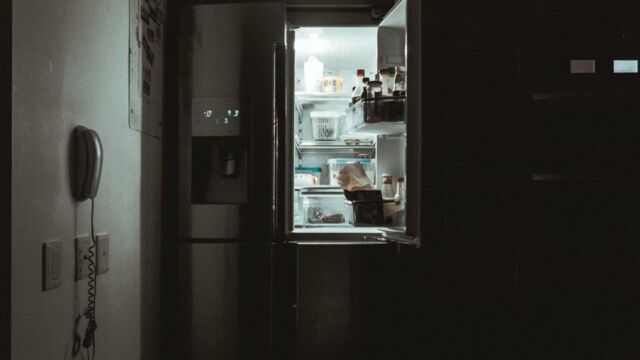Eating before going to bed is dangerous for your health, according to science

Craving sweets, chocolates and other treats before bed is commonplace, but it can have damaging consequences for your health. Find out why it's important to limit nocturnal overeating.
We've all felt the urge to get out of bed and grab a snack. Who hasn't succumbed to the call of a packet of potato chips in front of their favorite TV show just before bedtime? Should we allow ourselves to eat everything without restriction, especially before enjoying a good night's sleep? You may not like the answer...
Discover our latest podcast
Problematic caloric overload
If late-night snacking leads you to exceed your daily calorie intake, it's best to avoid this bad habit. In fact, it's best to refrain from having an extra late-night snack if you want to get a good night's sleep. The reason? You could simply be putting your digestive system to the test.
More under this adMore under this adDifficult digestion leads to poorer quality sleep. Also, if you go to bed soon after eating, you risk suffering from heartburn and therefore not getting enough sleep, or at least not enjoying quality sleep.
Digestion time: why eat three hours before bedtime?
It's advisable to stop eating 2 to 3 hours before going to bed, so as not to overload the stomach and to facilitate digestion, which takes place in a sitting or standing position, not lying down. This is also why we speak of a 'digestive walk' after a big family meal, for example. So, as you can see, don't lie down immediately after eating, for better digestion and, above all, to avoid storing unhealthy fats! Indeed, it's at this time of day that the body stores the most fat, so the more you eat, the more you store... Logical! Beyond that, it's important to ban certain foods to sleep peacefully.
More under this adMore under this adFoods to avoid before bedtime for a good night's sleep
Caffeine
Coffee and drinks containing caffeine, such as certain soft drinks, should be avoided before bedtime. It's even advisable to stop drinking them after 4pm, as it takes at least 5 hours for the caffeine to be assimilated by the body. Instead, opt for a thyme tea, which will help your digestion, or a chamomile infusion.
Alcohol
Alcohol dehydrates you, and if you consume it, you risk waking up during the night to drink, disrupting your sleep. What's more, your sleep won't be at all restful... A small glass of wine with a meal is always pleasant and tolerated, but be sure to leave at least two hours between that glass and bedtime.
More under this adMore under this adFried foods
French fries, doughnuts, egg rolls and other fried foods are not recommended for dinner. As the body stores more fat during the sleep period, it also runs the risk of storing these fats!
Spicy food
Avoid eating Thai or Indian food in the evening - it could well save your evening and your night! Spicy foods cause heartburn and make digestion more difficult, especially if you're not used to them!
More under this adMore under this adFoods for a better night's sleep
So what should you eat? Some foods promote serotonin synthesis, while others can impair sleep. To guarantee a good night's sleep, you need to include tryptophan-rich foods in your diet. Here's a short, non-exhaustive list of foods that help you sleep better.
- Dairy products
- Poultry
- Starchy foods such as pasta, brown rice, brown bread and potatoes
- Hot drinks such as herbal teas, rooibos, hot lemon, etc.
Now you know all the secrets to a good, restful night's sleep and a well-kept stomach. Let's head for Morpheus' arms!
Read more:
⋙ These sleep habits are unknowingly ageing you
⋙ Shoulder pain from sleeping: This is what your body might be trying to tell you
⋙ The full moon this week can affect how well you sleep, here's how
⋙ Here are 5 possible reasons you can't sleep well at night, according to science
⋙ The side of the bed you sleep on can can say a lot about your personality
This article has been translated from Oh!MyMag FR.